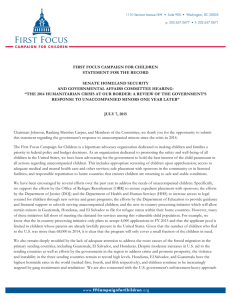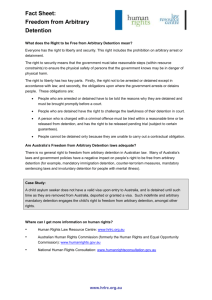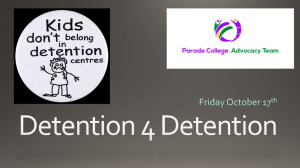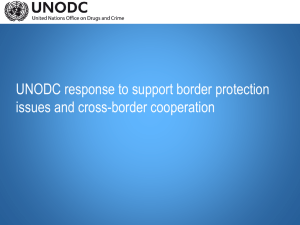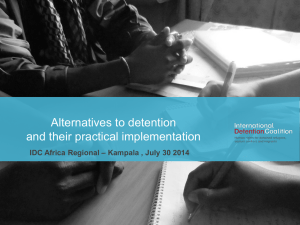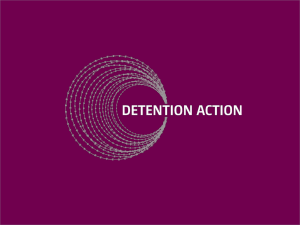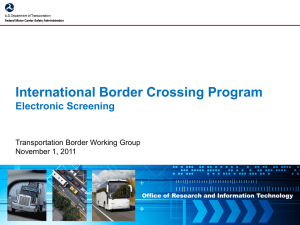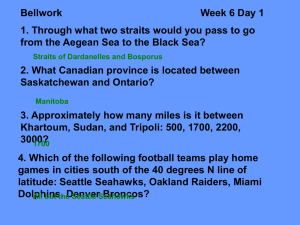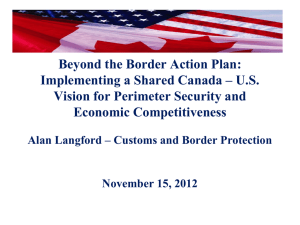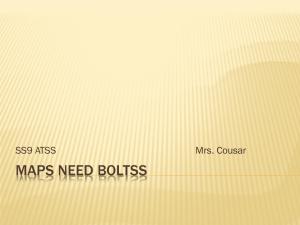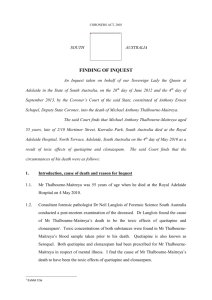Mr Geert Verbauwhede, Coordinator for Identification and Removals
advertisement
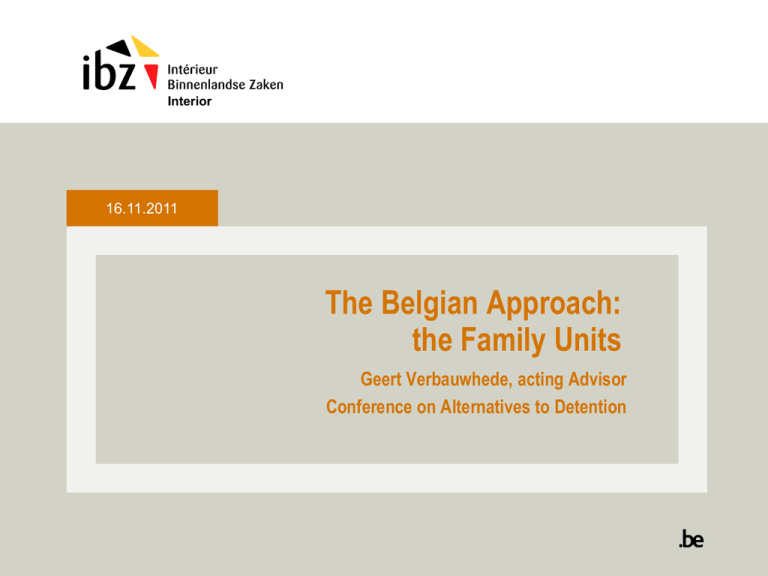
Interior 16.11.2011 The Belgian Approach: the Family Units Geert Verbauwhede, acting Advisor Conference on Alternatives to Detention History before and since alternative • Until 1998: no detention of families with children (exception: border cases) • Until 15.05.2001: detention of one of the parents; rest of the family free problem: rest of the family did not present themselves at date of removal • Until 01.10.2008: detention of families as a whole • From 01.10.2008: no detention of families with children (exception: border cases) • Since 01.10.2009: also border cases no longer detained 16.11.2011 Why this change? • Pressure of NGO’s and parliament to seek for alternatives • 2006-2007: report made by external study agency with presentation of different alternatives • 2007: report presented to parliament • March 2008: test with invitations to the Immigration Office – unsuccessful (only 10 % of invitees came) 16.11.2011 Creation of Family Identification and Return Unit (FITT) 1 October 2008 • Return officers (coaches) of Immigration Office • Assist families in preparation of return, legal questions, logistical matters, … • Cooperation with IOM • Sponsored by EU Return Fund • Cooperation with local authorities and NGO’s • Also looking for staying alternatives if asked by families (depending on information given by families) • Now: 4 coaches + 1 coordinator + 2 technical support + 1 logistical supervisor 16.11.2011 Family Units • Alternative = individual houses or apartments for families (former police force houses) • 15 family units in use – 7 in preparation • Completely equipped en furnished • One family per unit because of privacy – in bigger houses possibility to put 2 families • Long term Plans : looking for bigger site and / or extra locations then of course necessity for extra coaches 16.11.2011 16.11.2011 16.11.2011 16.11.2011 Family units in detention Centre • Recent ECHR decision: no detention of families unless specific infrastructure • Decision of State Secretary for Migration and Asylum Policy: creation of specific family units in the detention centre at the airport separated from rest of detention centre; 5 prefab vacation houses with necessary infrastructure • Who can be detained: specific border cases (INAD), families who did not respect rules in family units • Timing: Spring 2012 16.11.2011 Legislative framework • Royal Decree of 14 May 2009: rules for the family units, rights and obligations for families • Planned: Royal Decree stipulating which categories of families with children can be detained in future 16.11.2011 Evaluation • Relatively positive evaluation by NGO’s and by administration; international interest in system (Council of Europe, EU, other EU member states) • BUT: concerns about large number of absconding (25 % - percentage of absconders within Dublin scheme is even 53 %) • Exhaustive internal evaluation on different criteria, which can be used for future continuous evaluation • Family units are no longer Project but are embedded return procedure • Still necessity to develop cooperation with other State Agencies (e.g. reception centres) 16.11.2011 Assessment on arrival of families at the Border • Since opening of family units for border cases: clear increase of families arriving at border + new nationalities (Afghanistan, Iraq, Iran, Sri Lanka) and new departure airports (Moscow) from 23 families in 2009 over 66 in 2010 to already 103 until 27.10.2011 • Families stayed already a long time in third (transit) countries before arriving in Belgium • Many recognized refugees + subsidiary protection at the border • Looking for balance – avoid that family units become pull factor 16.11.2011 Statistics (up to 03.11.2011) • 249 families with 452 minor children (80 irregular migrant families, 51 Dublin families, 118 border families) • 240 families have left the family units - 102 families departed to country of origin or third country (23 IOM, 25 Dublin cases, 5 bilateral cases, 14 “forced” removals, 34 refoulments at border, 1 voluntary departure without assistance) - 60 families “escaped” (absconded) - 78 families were freed (9 families temporarily or definitively regularized; 29 families recognised as refugee; 8 families subsidiary protection, 5 families pending asylum procedure; …) - 1 family separated (child not related with “parent”) • Average staying period: 23,7 days • Top 5 nationalities: Iraq, Afghanistan, Brazil, Russian Federation, Armenia 16.11.2011 Questions? • geert.verbauwhede@ibz.fgov.be • muriel.hulpiau@ibz.fgov.be • www.dofi.fgov.be 16.11.2011
